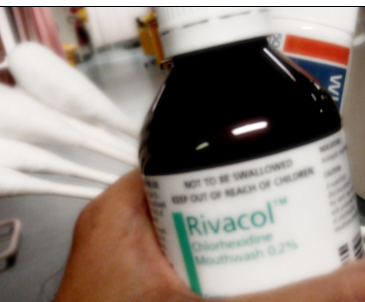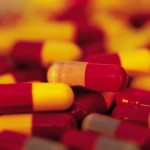Oral Care: in eldercare, the mouth is often overlooked

Our mouths – so important for so many reasons – seems overlooked, dismissed, ignored in its role in overall health and well-being.
Consider the work we expect from our mouth: in addition to the vital task of eating (and all that’s required from lips, tongue, teeth, cheeks) there’s the impact of talking, coughing, sneezing and even breathing when the nose isn’t properly working.
Anyone’s who’s had a toothache, cold sore, tender gums, dry mouth, canker sore knows no matter the state of health of the rest of you – the buck stops at the mouth. Add age, medications and their side effects, chronic conditions, mental decline and there’s a world of trouble brewing. Even health care professionals need to be mindful of oral care. From the journal, Impacted Nurse:
“Just yesterday we had an elderly lady who we just could not get to keep any oxygen masks or nasal prongs on. She just kept swiping across her face and knocking them off. After trying everything, I though as a long shot I would give her some mouth-care. Her mouth was dry as Mars. And guess what? After a freshen up and a little Vaseline to her lips she slept like a baby.”
For many, mouth problems are tied to conditions:
(Also from Impacted Nurse)“There are groups of patients that are predisposed to mouth hygiene problems such as those with chronic obstructive pulmonary disease (due to persistent mouth breathing), patients that are nil by mouth and those with physical injury or intellectual impairment.
- Oncology patients: cytotoxic drugs or radiotherapy can cause damage to the cells lining the mouth leading to ulceration (mucositis).
- For those working in ICU or emergency, intubated patients are at increased risk of ventilator acquired pneumonia if a mouth full of incubating oral pathogens migrate to the lungs.
- Prolonged oxygen therapy dries the oral mucosa and can also lead to cracking and ulceration.
- Medications such as antibiotics, steroids, antihistamines and antidepressants can all depress the normal protective flora of the mouth resulting in bacterial growth or infection.

- The most common oral infection is thrush (candidiasis) which appears as whitsh plaques on the mucosal lining.
After the bad news, strategies to help with oral health:
- Pineapple pieces. contain an enzyme called ananase which cleanses the mouth and have been suggested for use by radiotherapy patients with mouth problems.
- Papaya pieces contain an enzyme called papain which breaks down the protein of saliva and can be useful in patients with thick or ‘Ropey’ secretions clagging up their mouth (Sodium Bicarb may also help with this).
- A note on alcohol based mouthwashes Studies have shown that mouthwashes containing greater than 20% ethanol may cause keratosis, mucosal ulceration, gingivitis and most recently, an increased risk of oral cancers with prolonged usage1
The Canadian Dental Association has tips for caregivers
For a dentist, there’s much to consider in oral health for the elderly infirm. Like how to get to their mouths when they’re in a wheelchair. When Dr Natalie Archer was asked to design the Dental Clinic at Runnymede Hospital she did so with a the elderly who are challenged physically or mentally.
“We have a specialized dental chair that operates on air, and can be easily moved to anywhere in the room, which allows us to accommodate wheelchair bound patients easily. We also have specialized ceiling lifts to allow us to safely transfer any patient from their wheelchair to the dental chair with ease.”
Go Dr Archer and Runnymede Hospital: Would that all facilities treating seniors could offer specialized surroundings.